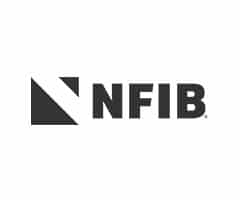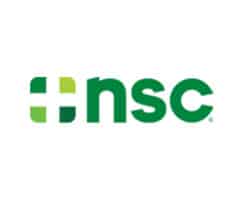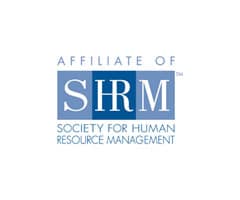You’ve just sat down for an interview and you’re feeling a little nervous. After a few quick exchanges of small talk, it’s time to get down to business. You’re trying to recall all those notes you prepared, hoping your background noise stays quiet for the duration of your Zoom, and going over the buzzwords you want to avoid. You know what’s coming, yet it always catches you by surprise: the dreaded first question.
“So,” your interviewer says, “tell me about yourself.”
Where do you begin? Do you jump right into the details of your résumé? Do you talk about what you do in your free time? Or how much you want this job?
The “tell me about yourself” question is an almost universal way to kick off an interview. In fact, nearly 60% of job recruiters report that this is their go-to first question for a candidate. Although planning ahead and embracing the open-ended nature of this query can feel overwhelming, acing it could just be the key to ensuring your interviewers remember you as the standout candidate you are.
TAKE YOUR TIME
You might come across some career “experts” who suggest sticking to answers as short as 30 seconds because hiring managers will lose interest. While unorganized rambling will do you no good, hiring managers are likely looking for more information than you can express in under a minute. Managers ask questions like “tell me about yourself” because they are looking to see whether your professional skills align with the role you’re interviewing for.
“It may be difficult to understand the depth of a candidate’s experience related to the role if his response is shorter than three minutes,” Brenda Kurz, chief administrative officer at Toptal, previously told Fast Company. In the same piece, Pete Sosnowski, head of HR and cofounder of the tech startup Zety, agreed:
You want to give an impression that you really thought this through. If your answer is too short, the recruiter might think you simply don’t care or have much to say.
It’s not just what you’ve done in your career, but why you made those decisions. The average hiring manager spends just seven seconds looking at your résumé, so this is your chance to show them who you are. When you answer this question, you want to share a clear narrative of the experiences, roles, and achievements. Use this time as an opportunity to road-map your interviewer’s takeaways so that you will stand out against other candidates.
THINK LIKE A LEADER
If you answer this first interview question hesitantly, chances are it’ll be harder to impress upon your interviewers that you’re a strong leader. Kicking off your interview with the intention of motivating and inspiring your potential employers can help you land the job. Try taking a less “informational” approach and more of an “inspirational” one. Show that you’ve done your research on the company and don’t be afraid to move the conversation toward your own visionary thinking.
You can also adopt what Judith Humphrey, author and founder of The Humphrey Group, calls “the Leader Script.” Open your answer with a line such as, “I’ve heard so much about you from my previous interviews, so it’s great to meet you in person.” You’ll come across as being open-minded and self-assured: two qualities that will remind interviewers of your leader’s presence.
But it’s not just what you say that will make your interviewers see you as a leader. Humphrey also pointed out that leadership begins with your physical presence in a room. Be vocal and animated. Speak energetically. Act enthusiastically and eager to be there. A smile and good posture could just be the extra note of confidence to show recruiters your commitment to the job.
EMBRACE IT
When hiring managers inevitably look at you and say, “tell me about yourself,” think how your answer can be the start of a deeper conversation, leading to a stronger relationship with your interviewer. According to public speaking coach and founder of Spokesmith Eileen Smith, you should keep three themes in mind when crafting your response: Engage your audience, establish credibility, and tell your interviewers why they should care.
In tailoring your answer to your specific audience, you will find ways to connect your experience with the expertise and interests of those listening to you. Smith recommends using some version of, “This is important because . . . ” to link what you have told your interviewer with what you hope they remember about your potential in this new role.
GET AWAY FROM YOUR RÉSUMÉ
As much as your previous leadership experience matters, employers are also looking for a well-rounded candidate. Don’t discount the last thing you read or watched as material for the “tell me about yourself” question. This can be a way to demonstrate your interests beyond the workplace and to show hiring managers that you have opinions that you’re not afraid to express.
“I look for curiosity. I legitimately don’t care if the answer is Game of Thrones, as long as they have an interesting take and an ability to communicate it clearly,” said Jess Greenwood, North America’s head of strategy at R/GA, in another Fast Company report. “We work hard, and maintaining a life outside of it is important. I want to hear how they stay grounded and what makes them happy.”
DON’T NARRATE YOUR LIFE STORY
The only thing you’ll accomplish by admitting how you’ve been unable to get a job or that you’re unsure why this position is a good fit for you, is leaving hiring managers absolutely cringing. “Tell me about yourself” is a great opportunity to share what you’re like beyond your one-page résumé, but be careful about spilling your emotions and dishing out your entire life trajectory.
Michelle Mavi, director of content development, internal recruiting, and training for the hiring agency Atrium Staffing previously warned candidates in an article for Fast Company that the nature of this question can feel daunting. “As it’s a very broad and open question, candidates are prone to ramble, talking about their professional selves in very generic and general terms, and basically rehashing their résumé,” she said.
BE ON THE LOOKOUT FOR SIMILAR QUESTIONS
Sometimes, this question can be disguised as another. Anne Marie Squeo, CEO and founder of Proof Point Communications, always starts job interviews with “tell me your story.” She reminds interviewees that she and other hiring managers have already read a candidate’s résumé, so there’s no need to rehash it. Yet, 85% of candidates seem caught off guard by the question and fall back on reciting their résumés anyway. Or fall prey to the urge to tell the interviewers everything they’ve done since high school.
For Squeo, the question is meant to be an opportunity for a potential hire to offer an illuminating deep-dive into what drives and encourages them as a person. “One candidate not long ago responded to this question by telling me she’d been a concert pianist who had an injury and had to quit during college,” Squeo wrote recently in Fast Company. “She then took a deliberate approach to identify what also fueled her passion and embarked on a career in corporate communications. Here’s what I learned: She’s resilient, knows who she is, and is purposeful in her pursuit of a challenge.”
DON’T DISCOUNT YOUR ATHLETIC EXPERIENCE
Maybe you’ve just graduated or maybe you’re switching industries. Either way, your athletic experience could be a factor in showing hiring managers that you’re right for the job. A lot of the skills employers are looking for align with the characteristics you develop on the athletic field–you just have to convince an interviewer that this is the case.
Think about the challenges you encountered in a game and apply it to the workplace. Did you attend daily, grueling sport practices? In the workplace, former athletes will know how to work through tough times, handle a busy schedule, and always keep a goal in mind.
Remember all the sacrifices you made for your team, too. You gave up personal time to perfect that pass or that trick shot. You understand that if one team member is struggling, success will be impossible. These are all critical characteristics to bring to a workplace.
AVOID BUZZWORDS
Remember that employers interview many candidates, and if your answers sound the same as theirs, you don’t have a chance of sticking out. Using generic buzzwords will only increase the chance you’ll sound like a corporate drone, so try not to use too much jargon. To avoid this, practice describing your skills and your experience with anecdotes that demonstrate the value you will bring to a company. In other words, show your potential employers why your experiences have shaped you rather than tell them.
The same idea applies to generic accolades about yourself. Avoid inauthentic statements that interviewers can see right through like, “I’m a perfectionist,” “I get along with everyone,” and “this is a dream job for me.” According to a TopInterview survey, the two worst traits for a job candidate are arrogance and dishonesty. Don’t take the risk of coming across as disingenuous by using these vague lines. Instead, focus on moments of individual experience and growth–your interviewer will notice this.
PLAN AHEAD AND WRITE IT DOWN
If you’re reading this now, you’re probably expecting that your interviewer will look at you and say, “Tell me about yourself.” You might think very few candidates actually write out what they’re going to say but, without a script, you could be caught flailing in an interview. And with a question as common as this one, you should be prepared.
Humphrey offered advice for prepping your interview script in another Fast Company report:
As a former speechwriter, I can tell you, good scripts don’t come “in the moment.” There’s a slight chance you’ll get it right. But more likely, you’ll deliver mixed messages that don’t add up to a clear and compelling picture of yourself. You have to think a lot about how you’re going to tell your story. After all, it must inspire that particular interviewer, and that company.
Humphrey underscored that every job seeker needs a message. What is the big idea you want your interviewer to hear? And how should that show them you’re the right candidate? In getting this message across when you’re asked to tell interviewers who you are, you’ll have a better chance of securing your interview narrative right from the start.
FRAME IT AS A STORY
If you’re stuck while you’re trying to write out possible responses, Humphrey suggests framing it as a story. In a recent Fast Company story, she wrote,
The simplest way of thinking about flow is to build your story chronologically—with a past, present, and future. If you are in a job interview for an HR position and are asked why you want the job, you might develop this flow:
Past: “I’ve always loved people, and that’s why I’m passionate about this job in HR. I was outgoing and extrovertish, even when young.”
Present: “In my last two HR positions, I have developed programs that make employees feel safe and engaged. One program I am particularly proud of is our Mental Health offering.”
Future: “This job is my dream job, and as an HR professional, I know I would be a great fit for this role.”
PRACTICE, PRACTICE, PRACTICE
Even the best narrative won’t work if you sound like a robot. Whether you practice in front of a mirror or with a handful of trusted friends, you should go into an interview having already rehearsed what you plan to say. In an interview, you’re expected to balance sounding confident without coming across as a know-it-all. Striking this balance ahead of time will not only calm your nerves in the moment, but it will ensure that interviewers can relate to your personality.
According to a study conducted by TopInterview and Resume-Library, 70% of employers think a candidate’s personality is among the top three factors they consider when making a hiring decision. Personality consistently ranks higher than education (18%) and appearance (7%). So, stay calm, take a deep breath, and fire away at the script you’ve prepared.
BE YOURSELF. THIS IS JUST A CONVERSATION
When the interview time finally rolls around, take the moment seriously without wigging yourself out. Test the waters and follow the lead of your interviewer. Do they want to make small talk? Go with it. Are they probing for how much you know about the company? Go for it. The broadness of “tell me about yourself” should serve as an asset. You can talk about yourself while emphasizing the skills you will bring to the job. Skills are now the most important factor employers use when hiring, so don’t waste this opportunity to share your strengths.
Show hiring managers how you’re professional and experienced beyond your career accomplishments. In doing so, you’ll both tell interviewers who you are and why you’re the qualified choice.










